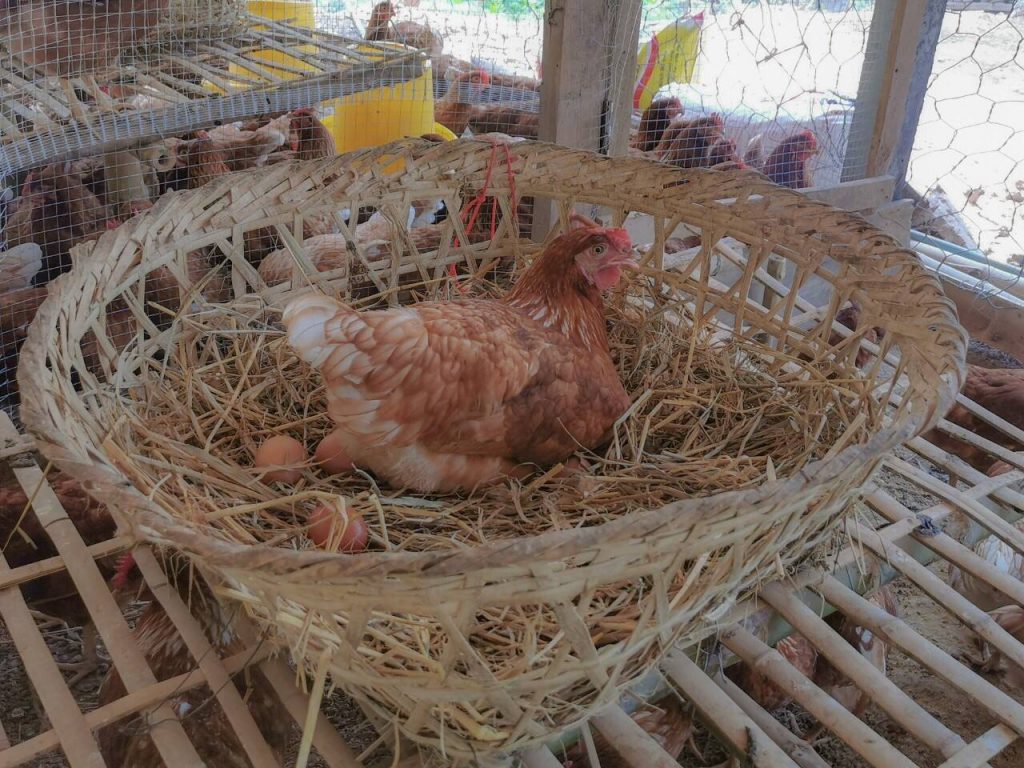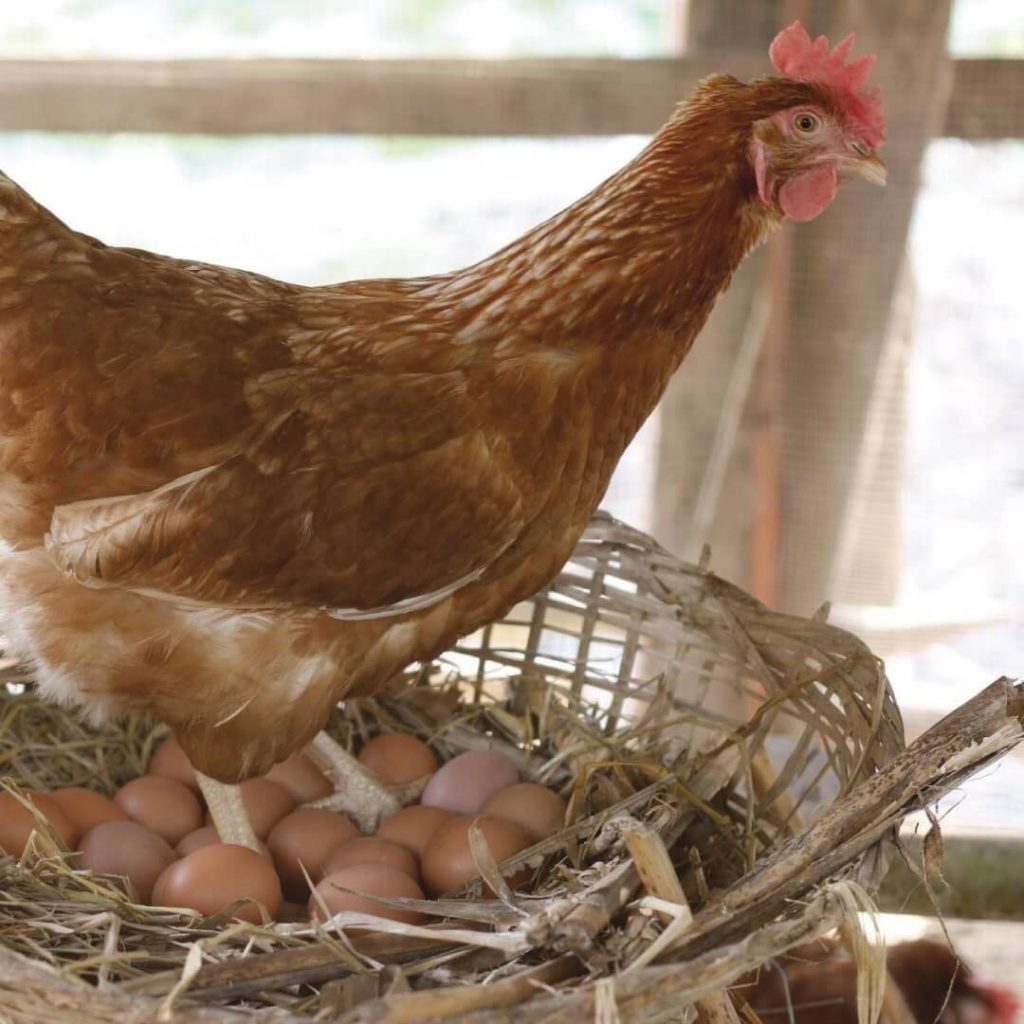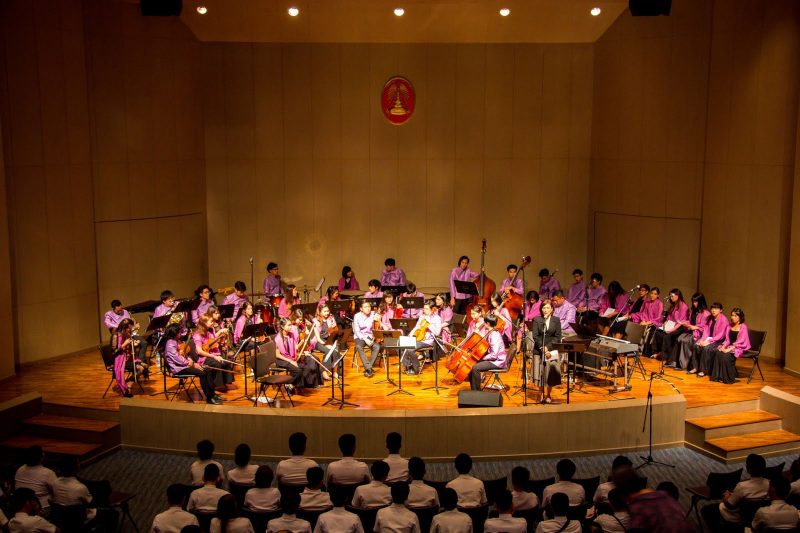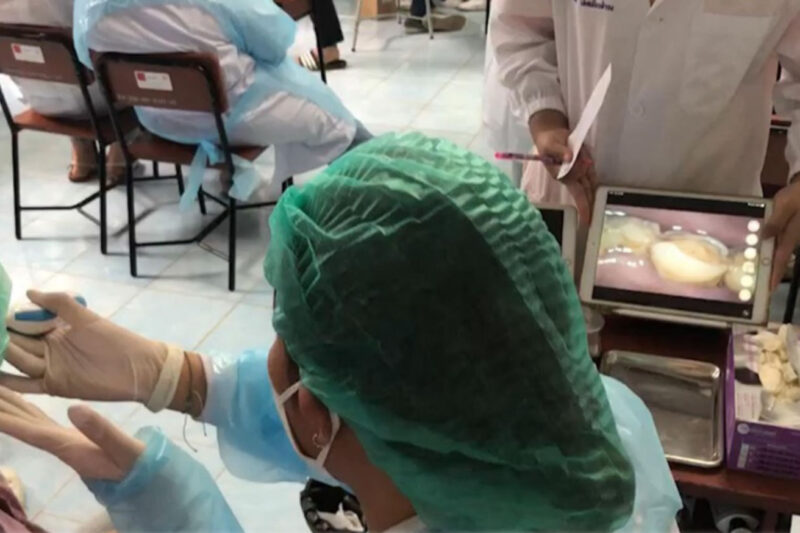Community-based certification opens new doors for farmers in Nan
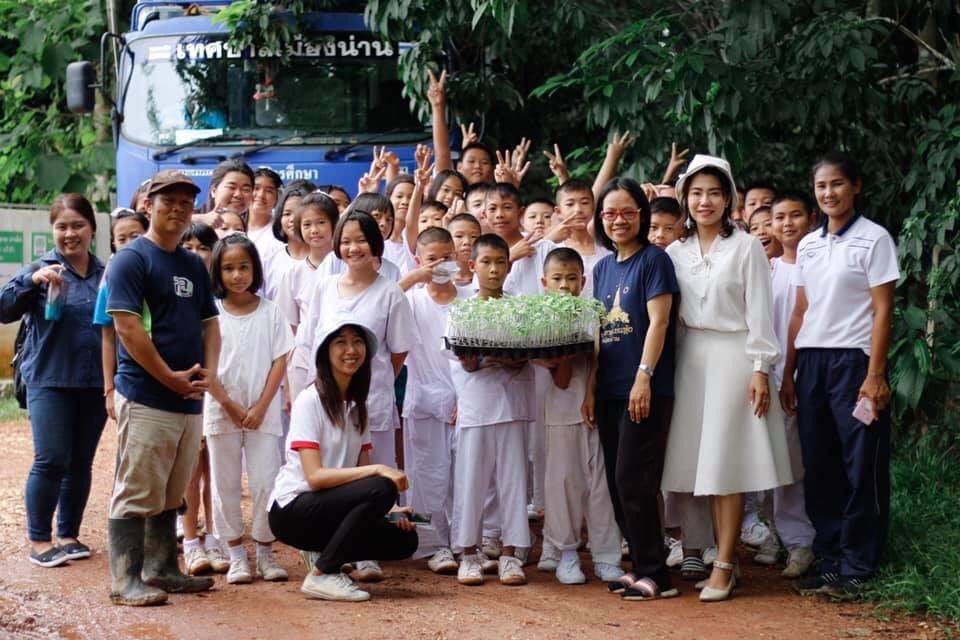
For many farmers in remote provinces like Nan, life seems to be a vicious cycle of chemicals, debt and death. Monoculture farming practices leave them no choice but to spray harmful chemical substances on their crops and to hope that they can sell their produce at a good price.
But what they receive in return is mounting debt and deteriorating health as a result of constant exposure to toxic chemicals and farm pollution. The result is a debt and death trap that is disastrous for farmers and also for society as a whole.
Agriculture experts from Chulalongkorn University are offering a way out of this trap with a program called “Brave Farmers”, providing solutions and support to break chemical addiction and turn to chemical-free agriculture.
One of the farmers who has turned over a new leaf with help from the program is Chanin Tipaka of Ban Huai Tad in Bo Kluea district of Nan. “Back when our community used to do monocropping, the results of blood tests on all of us showed high levels of toxins that were harmful to our health,” he recalls of the time before his village first got involved with the program in 2011.
While organic agriculture offers a path to more sustainable farming practices, smallholders like Chanin often struggle to gain consumer trust and market access unless there is a reliable certification system for their produce.
“Small farmers cannot afford third-party organic certification,” says Asst Prof Dr Tansiphorn Janhom of the Chulalongkorn University School of Agricultural Resources. “Private-sector certification is too costly while the government’s quality assurance procedures are too complicated and lengthy.”
They found the answer to resolving both technical and market aspects of sustainable farming through an initiative called the Participatory Guarantee System (PGS), introduced by the International Federation of Organic Agriculture Movements (IFOAM).
A PGS is a locally focused quality assurance system. It certifies producers based on active participation of stakeholders, building on a foundation of trust, social networks and knowledge exchange.
“Actually, the term ‘guarantee system’ is a communication channel between farmers and consumers,” explains Dr Tansiphorn. “Its real meaning is that farmers promise to produce their crops within a set of agreed requirements to guarantee quality under organic definitions that are perceptible to consumers.”
As with any quality assurance system based on trust, a PGS relies on active participation of key stakeholders including farmers, consumers, local authorities and businesses to support each other in the inspection and verification of farming practices to ensure they are carried out according to organic standards.
As a young participant in the Brave Farmer Group, Chanin started off by growing organic vegetables, then joined the PGS Organic Agriculture project. “Organic agriculture is the ideal solution to all my ambitions,” he says. “I have learned so many things that I wanted to know since joining the group.”
During his university years, Chanin interned at a food lab, checking the safety of local and imported fruits and vegetables. “I learned how much chemical residue contaminated the food we produce and consume. That triggered my concern about my family’s quality of life,” he recalls.
Through a joint effort by various groups, farmers in his home province gradually turned away from chemical-dependent farming. The annual results of blood tests in recent years have shown decreasing levels of toxicity among farmers, a testament to the benefits of chemical-free practices.
From an initial 35 households, the Nan PGS has grown to 106 participants farming a total of about 350 hectares. Of that total, 133 hectares have applied for PGS and 112 hectares were certified by the Nan PGS organic group as of 2019.
Three years after joining the project, Chanin and his family now earn their living through organic chicken farming, selling organic eggs to Lemon Farm, a major organic retailer in Thailand. With only 300 chickens, they produce at least 3,000 eggs a week, bringing an average income of 10,000 baht a month. They also grow vegetables to supply their own restaurant on the farm.
“We now have a sustainable income and living, without relying on monocropping as before,” he says. “Moreover, we don’t need to leave the community in search of extra income to sustain our living or encroach the forest to expand our farmland.”
The PGS concept not only improves farmers’ livelihoods but also strengthens grassroots organization, says Dr Tansiphorn. This is because PGS farmers need to work collectively when dealing with the market. Produce supplied to the market is labelled as output from the group, and not from any single farmer.
The quality control process is done through oversight by the members themselves. To qualify for PGS organic certification, each farm has to be inspected three times in a year, first by representatives of neighboring villagers, second by representatives of other districts, and finally by representatives of buyers or consumers.
“Once we work with consumers and businesses such as hotels, restaurants and coffee shops, they now have a different perception of the products they buy,” says Dr Tansiphorn.
“It is no longer just a fruit or vegetable, but they are buying clean air, clean water, less contamination and eventually a forest in return.”
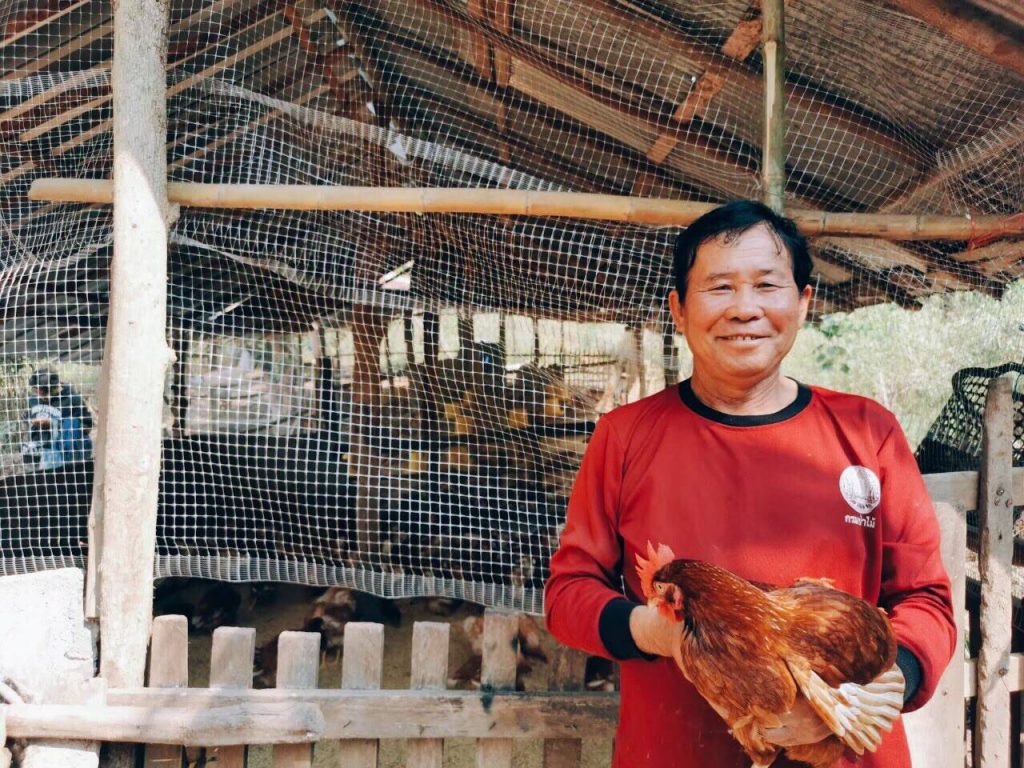
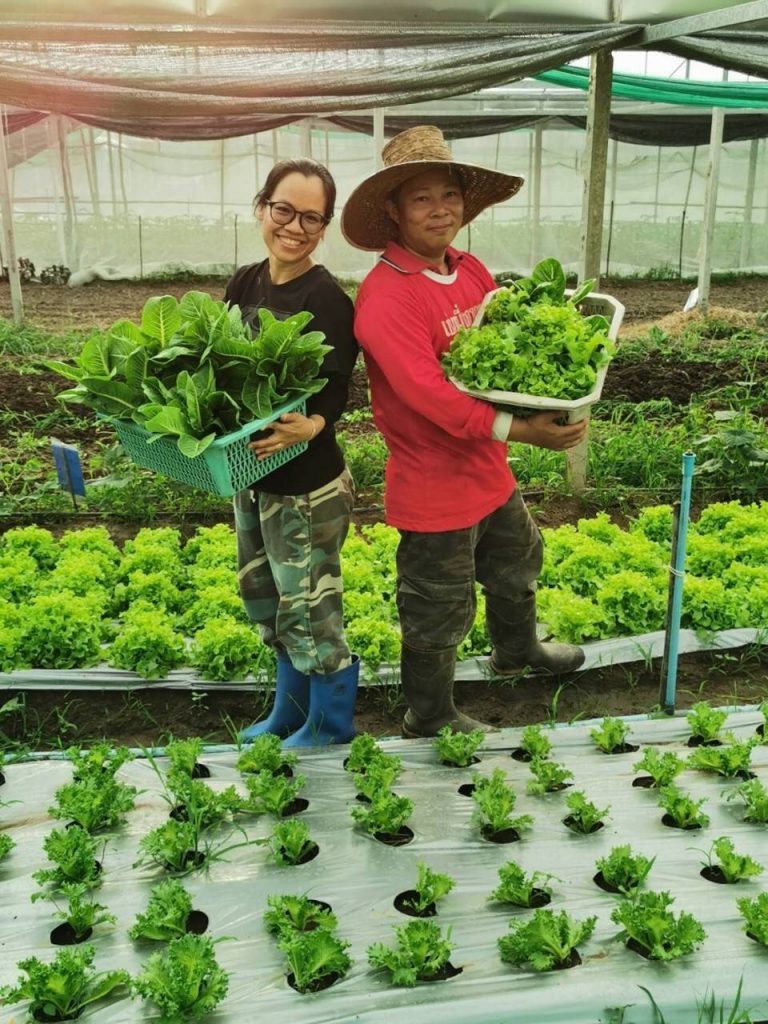
Related articles:
Others
Enjoy Music at Chula
Thai and Western, traditional and contemporary offerings find a large and enthusiastic audience

